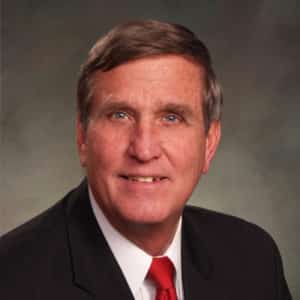The 2018 midterm elections demonstrated how diverse and polarized our country has become. As most races were determined during elections night, the results of many late call races were announced over the following weeks to determine the direction of the House of Representatives and whether or not there would be a “Blue Wave.” Law enforcement officers were more focused on the smaller battles that impact the men in women in blue who protect and serve communities across the nation. The outcome of these state and local races will impact the issues that affect law enforcement like police compensation and training, strategy for battling the opioid epidemic, treating mental health, community relations, and immigration.
With these issues in mind, the American Police Officers Alliance focused its attention on a number of key elections, including US Representative Pete Stauber’s victory as well as state House and Senate seats and Sheriff posts in states like Minnesota, Illinois, Colorado, and California. When the dust finally settled many of the results indicate progress and improvement ahead for police issues and community relations.
 Minnesota State and Sheriff’s Races
Minnesota State and Sheriff’s Races
In Minnesota, a trio of State legislators with law enforcement background all easily cruised to victory ensuring that the needs of police in that state would be addressed. We previewed those Minnesota races earlier this month.
Pat Garafolo (R) was re-elected to his with terms as Minnesota State House representative in District 58B defeating Marla Vagts (DFL). This year’s election marked the third time Garofolo and Vagts have competed for the seat. Pat won the election with 58.84 percent of the vote.
Matt Grossel (R) won Minnesota State House District 2A defeating Michael Northbird (DFL). Grosnell who has served both in the military and in law enforcement has emphasized the budget in his time as State Representative, including tax relief and education investment.
Lastly at the state level, (R) Brian Johnson won Minnesota State House District 32A defeating Renae Berg (DFL). Johnson is a three-term member of the Minnesota House representing Northeastern Minnesota. He is a retired law enforcement officer and has been the chief author of eleven pro-law enforcement bills including strengthening drunk driving laws and setting the public safety budget for all of Minnesota.
At the county level, Dave “Hutch” Hutchinson (DFL) upset incumbent Rick Stanek (R) to become the new sheriff for Hennepin County in Minnesota, one of the largest counties in the state, which includes the city of Minneapolis. Earlier this year in the primary, Stanek received 49% of votes, while Hutchinson received 35%.
 Illinois Sheriff Races
Illinois Sheriff Races
Several Illinois races were highlighted in October, and the results include some surprises starting in In Kane County, where Ron Hain (D) upset incumbent Sheriff Donald Kramer (R). Hain had received endorsements from the previous two sheriffs in a contentious race that featured accusations of lack of qualifications from both sides. With the race over, the focus can return to community priorities. Hain has 22 years experience in law enforcement and was county SWAT team assistant leader before becoming sheriff.
In Lake County, John Idelberg (D) defeated incumbent Mark Curran (R). After serving in the Marine Corps, Idelburg became a Lake County Sheriff Deputy before serving as a police detective, and later a US Treasury Department Special Agent providing security for foreign dignitaries at the United Nation and the 2002 Winter Olympics. Idleburg wants to prioritize training and proper equipment for first responders, promote based on merit and experience, and address recidivism with a combination of substance abuse counseling, education, and life skills courses.
Brian Asbell (R) won the Peoria County Sheriffs race in Illinois. Brian Asbell was formerly appointed Peoria County Sheriff in 2017 following the retirement of Sheriff Mike McCoy. Brian is also a 22-year veteran of the Peoria County Sheriff’s Office and has worked as a Corrections Officer, Patrol Deputy, Detective, Jail Superintendent, and Undersheriff. Brian led the office through it’s most trying times as they sought to restructure after significant budget cuts. He overhauled systems, developed inmate and opioid addiction programs – all while bringing in the year $600,000 under budget. Brian claimed victory in this hotly contested race over Brian Fengel (D) with 59% of the votes.
James Mendrick (R) won the DuPage County Sheriffs race in Illinois. James ran for Sheriff with over 21 Years of service in the County Sheriff’s Office where he held a supervisory role for the last 16 years. James was a highly endorsed candidate, with support from numerous police organizations like the Metropolitan Alliance Of Police Local 126 and the DuPage County Professional Deputies Association. James ran on a platform focused on supporting police by upgrading technology to reduce costs, developing mental health programs, combatting school violence and public safety. James defeated Gregory Whalen (D) with just over 51% of the votes.
Incumbent Mike Kelley (D) held off a challenge from Jim Reilly (R) to be Sheriff of Will County. Kelley has over 30 years of continuous law enforcement service and has worked to combat the opioid crisis through several tactics that have contributed to the decrease in overdoses in the country despite an increase in heroin use.
 Colorado State Races
Colorado State Races
Two Colorado races we covered earlier in the year were for State Senator and Representative. John Cooke (R) was re-elected as Colorado State Senator. John is a former Weld County sheriff who first won election to the Colorado Senate in 2014 by more than 27 percentage points. John sponsored a popular transportation measure with Senate Bill 1 focused on critical infrastructure investments. John won Senate District 13, topping Phil Kelley (D) 62.16 percent to 35.36 percent.
Eric Rutherford (R) lost his bid to unseat incumbent Matt Gray (D) as State Representative of the 33rd district. Eric was a former DEA agent, was located in El Paso Texas where according to his website he battled “international drug cartels and violent criminals.” Gray is a former deputy district attorney who has focused on public finance and government efficiency.
Looking ahead
While the election is over, the real work is just beginning to combat the challenges that make it so difficult to work in law enforcement in these divided times. It is through the work of police and legislators who are committed to them that results and relationships will improve.









